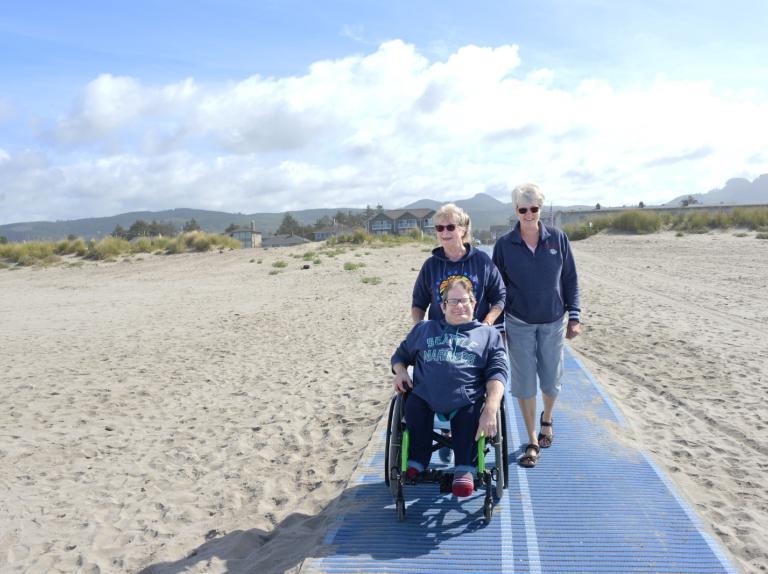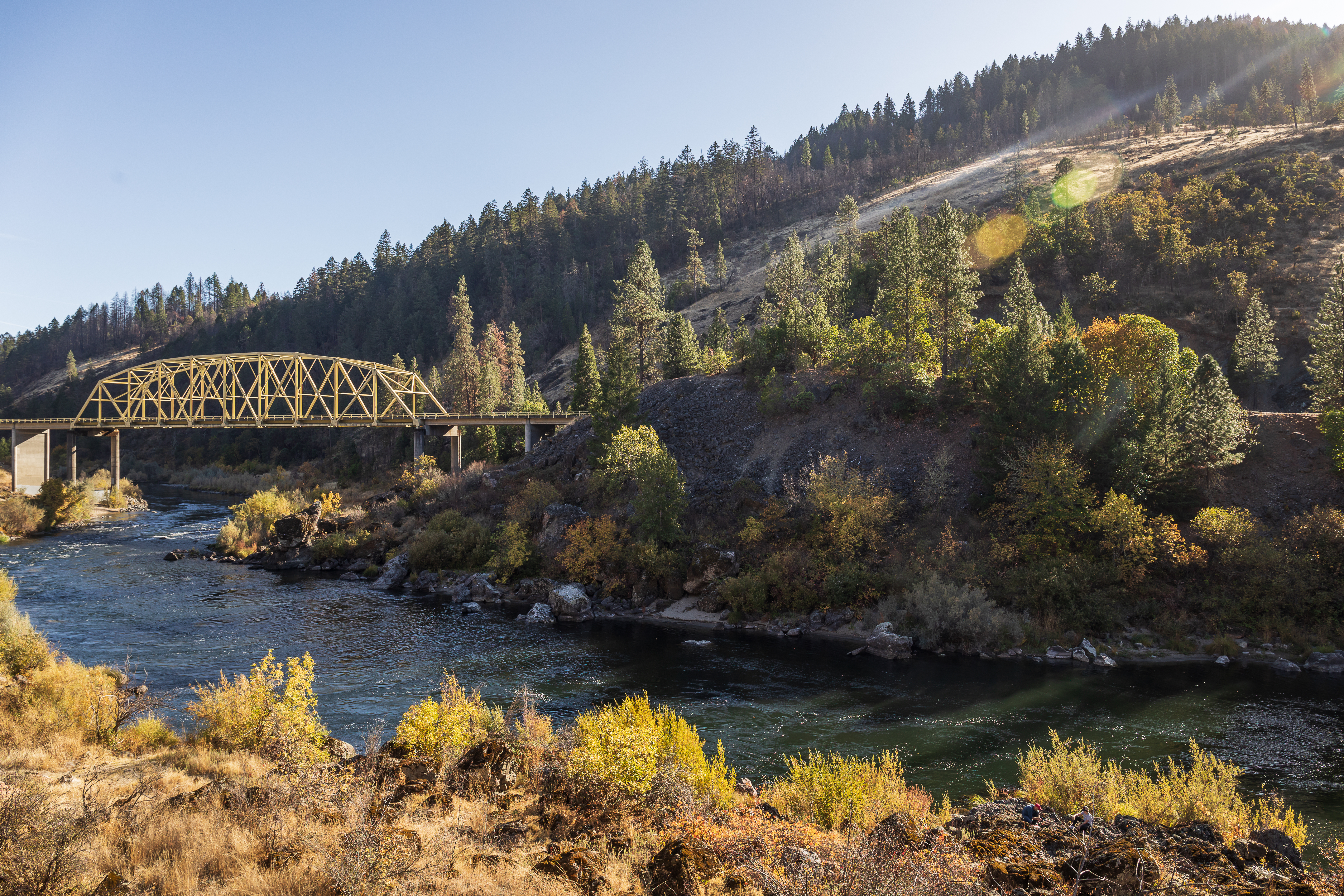
Travel Michigan, Travel Oregon, and Destination BC demonstrate that accessibility thrives when approached at scale. By leveraging expert partnerships, engaging communities and providing innovative funding, these organizations empower their destinations and set new standards for inclusion through accessibility.
Scaling Accessibility: Lessons from State and Provincial Trailblazers
Across the industry, many individual destinations stand out for their efforts to champion accessibility. These localized initiatives remind us that with empathy, commitment, and strategic focus, accessible tourism is achievable for all.
But what happens when accessibility efforts are scaled to a state or provincial level? “Forward Thinking States Discuss Their Approaches to Accessibility,” a session at the 2024 TravelAbility Emerging Markets Summit, explored just this.
Speakers Nick Nerbonne (Travel Michigan), Kevin Wright (Travel Oregon), and Kathleen Harvey (Destination British Columbia) shared how their organizations approach accessibility as a cornerstone of their tourism ecosystems. Their strategies, spanning partnerships, community engagement, funding, and outdoor innovation, demonstrate how larger-scale initiatives can catalyze industry-wide change.

Leading Through Engagement with Experts
Both Travel Michigan and Travel Oregon partner with accessibility experts to deliver exceptional experiences for travelers with disabilities. Collaborations with Wheel the World help ensure destinations meet both physical and digital accessibility standards. Programs with KultureCity support neurodivergent inclusivity in welcome centers and airports. Experts educate stakeholders through training programs and insights, building confidence in serving disabled travelers.
Building Trust Through Community Dialogue
Destination BC’s accessibility strategy is rooted in listening to its community. Over several months, jurisdictional reviews and research was conducted to compile a comprehensive set of accessibility features or attributes that tourism businesses across the province could self-assess against and showcase to potential visitors on their consumer website. The insights were shared with disability advocacy groups, whose feedback shaped Destination BC’s strategic direction. The organization keeps the conversation going through frequent e-newsletters, recognition of outstanding businesses, and disability-awareness training sessions in partnership with local experts, as well as consultation with its external Accessibility & Inclusion Committee.
Annual conferences hosted by Travel Michigan, Travel Oregon, and Destination BC further advance accessibility awareness. Conferences include speakers with disabilities who share their expertise and personal experiences, fostering empathy and deepening understanding among attendees.
Making the Outdoors Accessible to All
Renowned for their natural beauty, Travel Michigan, Travel Oregon, and Destination BC are proving that accessibility and outdoor tourism can go hand in hand. Travel Michigan has made significant investments in creating accessible campsites, while Travel Oregon leverages adaptive technologies to enhance its trails and beaches. These initiatives align accessibility with the core brand identities of these destinations, ensuring inclusivity is at the heart of their visitor experiences.

Empowering Destinations Through Funding
Scaling accessibility often requires substantial investment, and these organizations are leading by example. Travel Oregon has awarded $3.6 million in accessible grants, enabling destinations to improve facilities and infrastructure. Travel Michigan’s Accessible Traveler Grant program has awarded $1 million in funding to further initiatives across the state. Meanwhile, Destination BC incorporates inclusivity into every aspect of its work, dedicating budget annually to programs and internal training. The organization intentionally does not separate accessibility funding from other resources, to ensure that inclusion is embedded throughout its operations.
A Call to Action for State and Provincial Organizations
A standout insight from the TravelAbility Summit session came from Michigan’s data-driven approach. A visitor study conducted with Longwoods International revealed that in 2023, visitors with disabilities to the Greater Lansing region spent over $65.5 million with a multiplier effect of $96 million. This shows not only the societal impact of accessibility but also its economic potential.
The best practices shared by Travel Michigan, Travel Oregon, and Destination BC convey a clear message: state and provincial organizations are uniquely positioned to drive transformative change by embedding accessibility into their strategies and operations and equipping their destinations. By collaborating with experts, engaging communities, funding initiatives, and tracking impact, these organizations pave the way for others to follow.
For state and provincial based organizations or destinations considering their next steps, the session offered a simple yet powerful reminder: Accessibility isn’t just an add-on—it’s a fundamental pillar of community vitality and economic growth.
Submit Your Thought Leadership

Share your thought leadership with the Destinations International team! Learn how to submit a case study, blog or other piece of content to DI.


